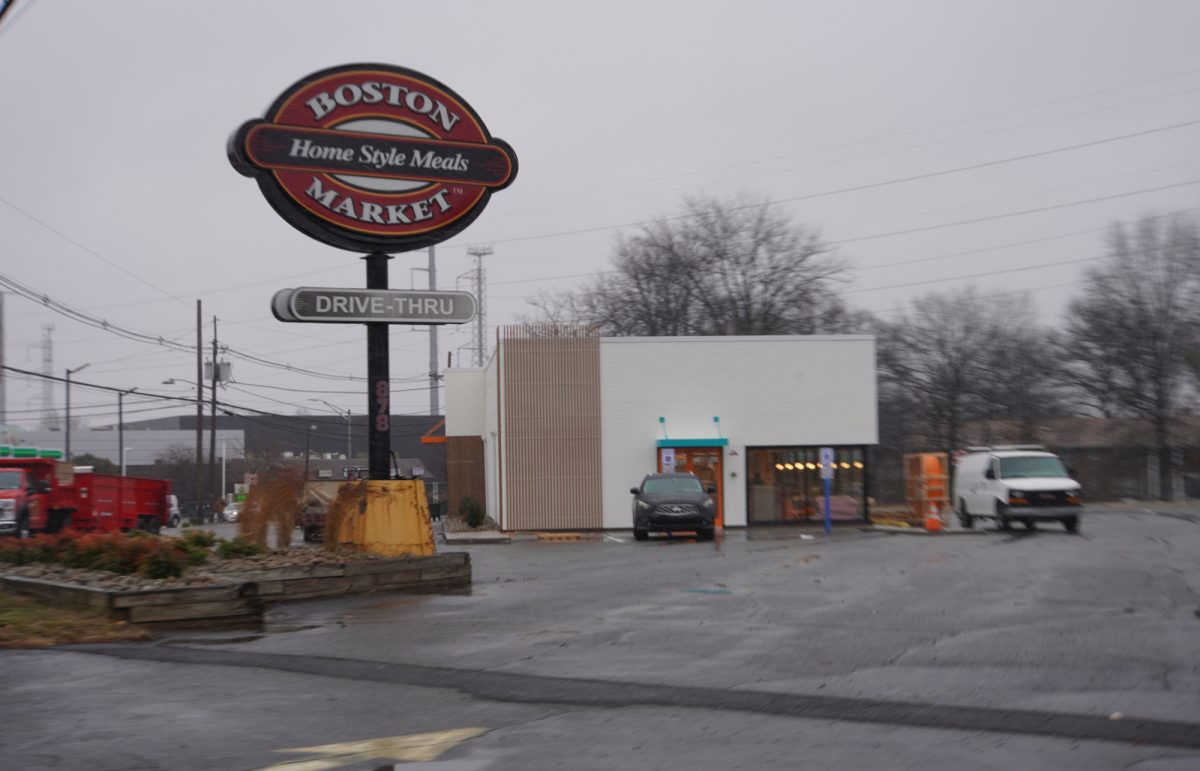My family and I would head to the local Stop and Shop weekly for groceries. Our house was only two minutes away, and convenience was at an all-time high. Since I was five, the same Stop and Shop had been our go-to convenience food store. Suddenly, the windows had been boarded up one day, announcing a permanent closing in a week. We relied on this store for nine years for our necessities, and it permanently closed in October of this year. Other Stop and Shops all around Edison have met a similar fate.
However, business closings cannot be coincidentally only present in Edison. Thousands of stores are closing nationwide, which marks a change for all businesses that strive to continue. The business aspect has been completely changing over the past few years, and many companies have had a tough time adjusting to it, resulting in their respective stores closing. To combat this crisis, businesses should keep up with the trends and switch to online stores alongside brick-and-mortar stores.
This move by the business not only increases its income by focusing on an online store but also keeps customer integrity by maintaining brick-and-mortar stores. When companies like Stop and Shop close, Edison teens lose the convenience of walking into a store and grabbing items they desire. They also lose social opportunities with friends. This problem is due to the loss of places where teens feel independent and autonomous for once. There are also cases of Edison teens finding employment in such businesses. Fewer local businesses would then mean students with fewer opportunities to gain new and necessary skills.
If these problems are only going to occur due to the switch to online stores, why switch at all? Although the locations get shut down, the buildings stay and can be repurposed into new, renowned and loved businesses of Edison.
An Omniscient Perspective: What is going on?
Over the past few years, hundreds and thousands of businesses have shut down many of their locations nationwide. Other large businesses are also shutting down some of their locations to keep up with the changes occurring over the past few years, such as inflation, increased real estate costs, and changes in consumer behavior. CBS News explains that Big Lots, Rite Aid, CVS Pharmacy, Walgreens, and Foot Locker are prominent companies in which many locations have been shut down. New Jersey is a victim of this change in company needs as well. Many necessities in my life have been closed down. Stop and Shop, Boston Market, Sam Ash, and Family Restaurant stores have closed all over the state, which lowers convenience and accessibility for people living in New Jersey.
The Future of Businesses
The main three reasons for the abundance of business closures over the past few years are inflation, increased real estate costs, and changes in consumer behavior. Over the past few years, inflation has reached an all-time high, reaching over four times the national average. This rapid inflation devalues the American dollar at an increased rate. Writers for 2013 Dollars, a web page made by qualified individuals in the industry, stated that an item worth one dollar before the pandemic would be worth nearly $1.50 today. With prevalent companies spending from hundreds of thousands to millions of dollars per day, the costs add up.
Along with inflation, real estate costs have risen, making maintaining many brick-and-mortar stores across the country increasingly difficult. As seen in “How much does building maintenance cost?” in The Consulting Engineer, a website made by volunteers in the industry, the annual maintenance cost for a supermarket in the US ranges between $2 to $3.50/ft2. According to Brr Architecture, the average size of a supermarket is about 40,000 square feet, meaning that the annual cost per store per year would be from $80,000 – $140,000. This cost is non-inclusive of the added bills such as employee salary, rent, utilities, inventory, and more. These prices may seem insignificant for a dominant retail company. However, one must consider that major businesses like Stop and Shop have over 450 stores opened nationwide, which adds up to 63 million dollars yearly for just maintenance.
The Transition of Trends
To combat business change, companies should adapt to people’s trends and focus on a digital store rather than maintaining hundreds of brick-and-mortar stores nationwide. People’s shopping trends have been changing ever since the pandemic. Being restricted from going outside, the majority switched to e-commerce. According to Investopedia, a website made by experts in the financial field, e-commerce sales went up from 500 billion dollars to 800 billion dollars in just the first year of the pandemic. Many businesses have failed to make the switch and are, therefore, going out of business due to the lack of people going out of the comfort of their homes to shop at grocery stores. Although one might argue that switching to online shopping entirely is the best move for businesses, this “solution” would lead to a collapse. An in-person store offers consumers the ability to physically interact with products and provides an engaging experience with speedy customer service. This experience can draw customers to companies and is one of the main reasons businesses like Costco and Walmart are highly esteemed and trafficked.
Edison teens are also indirectly affected by the closing of certain stores in the area. They lose the availability of stores in which they can hang out casually with their friends. Hanging out with friends, especially in stores with no adult supervision, gives teens a sense of independence and autonomy, a sense young people are hard to come by. Along with these losses, a minimal amount of stores also limits the number of social opportunities teens have, which limits the amount of social development they will receive in their teenage years. Being disconnected from social spaces can cause teenagers to feel more distant from the world and social life as a whole, which can hurt a teen’s mental health. Along with teens’ mental regressions, the closing of treasured companies in Edison can make citizens, especially teens, lose a sense of community. Finally, employed teens working in closing stores lose employment opportunities, potentially increasing unemployment rates.
On the contrary, the closing of these iconic businesses can lead to the repurposing of the stores and bring about a new generation of renowned companies in the area. The Ford plant in Edison next to Old Post Road, otherwise known as the Edison Assembly, was closed early in the 2000s. Now, it has been repurposed to some of the most renowned places in Edison such as TopGolf, Chipotle, Sam’s Club, and more. This solution makes for a compromise, as some companies can cut down on their brick-and-mortar locations to help their overall income. Meanwhile, other stores replace them, keeping a sense of community alive and providing abundant social opportunities for teens and the families that come with them.


















































































